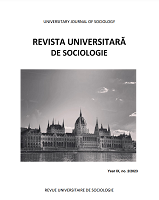STUDENT CLASSROOM MANAGEMENT AND LEADERSHIP TO IMPROVE SCHOOL RESILIENCE
STUDENT CLASSROOM MANAGEMENT AND LEADERSHIP TO IMPROVE SCHOOL RESILIENCE
Author(s): Andreea Aurora Maria Buga, Germina CosmaSubject(s): School education, Management and complex organizations, Sociology of Education
Published by: Ediktura Beladi
Keywords: resilience; management and leadership; teacher training;
Summary/Abstract: The pandemic period that humanity went through brought new challenges in the organizational environment of the school and the student class. More than ever, the teacher must identify solutions to improve school resilience. Management and leadership in a class of students are crucial elements for their growth and development. School resilience is the ability of students to adapt to educational challenges, cope with stress and overcome obstacles. In this study, we will explore the teacher education curriculum from a resilience perspective, the importance of management and leadership in the classroom and how these can contribute to increasing school resilience. By creating a safe and supportive environment, promoting effective communication, planning, and organizing, modeling positive behavior, and promoting collaboration and mutual learning, students can build the resilience needed to meet school challenges. Effective classroom management and leadership not only improves academic performance, but also prepares students for their future and equips them with skills and attitudes that will accompany them throughout their lives. Contemporary school leadership has always been considered to be one of the most pivotal factors conducive to school effectiveness as well as a driver of change and strategic innovation involving the development of a strong vision, attendant goals and a relevant plan for implementation, monitoring and review. However, the disruption in the provision of educational services caused by the recent COVID-19 pandemic global outbreak revealed deficits in school leadership theory that were largely associated with the adoption of proper crisis management skills by the vast majority of schools’ principals to readily adapt to a new reality and effectively confront upcoming challenges, at both instructional and organizational levels. Interestingly, although crisis management as a notion has been substantially elaborated on a theoretical level and successfully applied in different types of crises, it still has not gained a sustained focus within the field of educational leadership, as evidenced by the notable scarcity of related empirical research.
Journal: Revista Universitară de Sociologie
- Issue Year: IX/2023
- Issue No: 2
- Page Range: 350-357
- Page Count: 8
- Language: English

